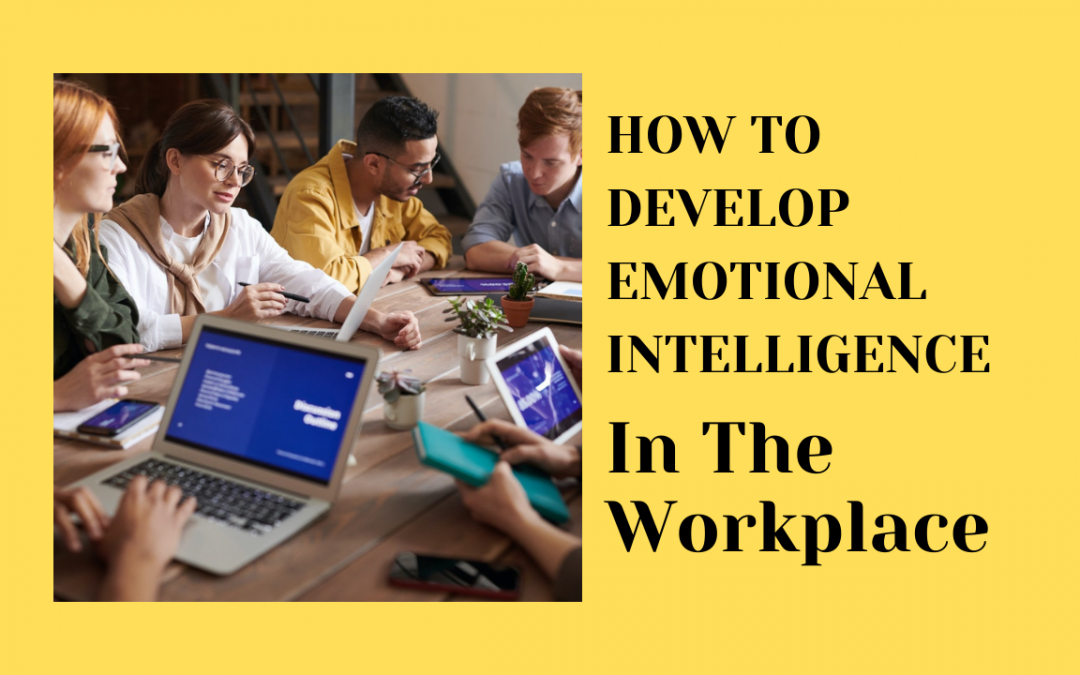EQ, or emotional intelligence, may not always be on our minds day to day. However, EQ is an integral part of all of our interactions in the workplace and in life – it’s just subtle enough that we don’t always notice it at play. For instance, we wouldn’t commonly exit a positive exchange with a co-worker thinking, “The emotional intelligence she used in her approach to problem-solving was incredible!” More likely we would simply walk away thinking highly of the person. But, if the exchange had gone poorly, we probably would think something like, “Okay, make sure you don’t go to her with your issues again, unless you want to be denigrated.”
What does this tell us? EQ can be difficult to notice – but we seem to see its absence much more clearly than its presence.
So, what exactly is EQ?
Before continuing, it’s important that we provide a clear explanation of what exactly EQ is. It gets used in many contexts today, but when we say “emotional intelligence,” we are referring to one’s skill in reading the interpersonal or emotional necessities of a situation and responding in kind.
This leads us to the next natural question: is there any difference between EQ and emotional intelligence?
The term EQ stands for “emotional quotient,” sister to the well-known IQ (“intelligence quotient”). Just like IQ isn’t quite synonymous for intelligence but was rather used as a measure of it, EQ is the same for emotional intelligence (that is, a quantifiable assessment score). However, over time, this usage has fallen out of favor, and EQ is regularly used today as a description of emotional intelligence, not a quantity. Therefore, “emotional intelligence” and “EQ” are now used synonymously.
Every Workplace Needs EQ
As we stated earlier, the absence of EQ can sometimes be quite jarring. Think of an arrogant boss, a doctor with poor bedside manner, or a coworker who is simply oblivious to your needs. Not only can this affect our work performance, but negative interactions like this can build up and ruin an entire day.
To navigate your professional (and personal) relationships in a successful way, you’ll need many different emotional, social, and interpersonal skills. Assertiveness, compassion, honesty, and temper management, among others, are critical. All of us as humans are social animals to some extent, and we all want to be heard and understood. When we aren’t, it simply feels… well, bad. This is especially true in the workplace, even the modern Zoom or Teams chat workplace. Employee engagement, job performance, and retention can all be affected by how well positive, productive interactions and relationships in the workplace are maintained. Fortunately, this is being recognized more and more often at organizations around the world, and EQ, along with many other important soft skills, are more readily sought after in the hiring process.
Our next four articles will focus on the need for organizations to develop agile workforces. EQ is crucial in the hiring process in order to yield this kind of agility. A recent study from Wiley showed that 97% of organizational leaders listed EQ as a necessary component of an agile workforce. Among respondents, a whopping 41% indicated that they had left jobs entirely due to a workplace that simply did not possess enough emotional intelligence. The good news is that EQ can be readily developed, at any age.
Emotional intelligence can be much more than simply good or bad, low or high. We each have aspects of EQ that we are stronger or weaker at. For instance, someone who is very persistent may not have as much patience. A person who is naturally cautious and knows when to be careful may not be so good in situations that require bold action. The world today requires that we have the capacity to handle many different situations, requiring all kinds of soft skills, with the same degree of competence. This notion of agility is therefore closely tied to emotional intelligence.
EQ and the Agile Workplace
Organizations and the people in them are more and more often requiring both agility and, in turn, an elevated workplace EQ. What do these traits share? Adaptability, flexibility, or the capacity to “stretch.” Moving beyond your comfort zone, stretching to adapt to what your situation requires of you – this is what allows a person to navigate the daily challenges of the modern, dynamic workplace, creating a more resilient, well-rounded emotional intelligence.
Of course, this doesn’t happen overnight. This “stretch” skill takes time and effort to develop. But once developed, the emotionally intelligent person is proposed as (1) someone who can deduce the most appropriate mindsets for each situation and (2) someone who stretches, even sometimes outside of their comfort zone, to use those mindsets to their fullest. Even that arrogant boss or disinterested doctor can improve their EQ.
The next four articles will show in depth the importance of EQ in the workplace and our solution to building it up.
Subscribe to our newsletter here to be notified when our content is released: https://carverassociates.com/newsletter/
Lastly, if you’d like to watch an on-demand webinar on how to develop the EQ necessary to support your thriving agile culture with Everything DiSC Agile EQ, learn more here: https://carverassociates.com/on-demand-webinar-agility-starts-with-developing-eq/
Ty Miller is a Leadership Strategy Consultant at Carver & Associates. He Helps Leaders Cast A Vision, Align Their Teams To It, And Drive Execution Of That Vision.
Connect with Ty on LinkedIn here: https://www.linkedin.com/in/tymillerco/

